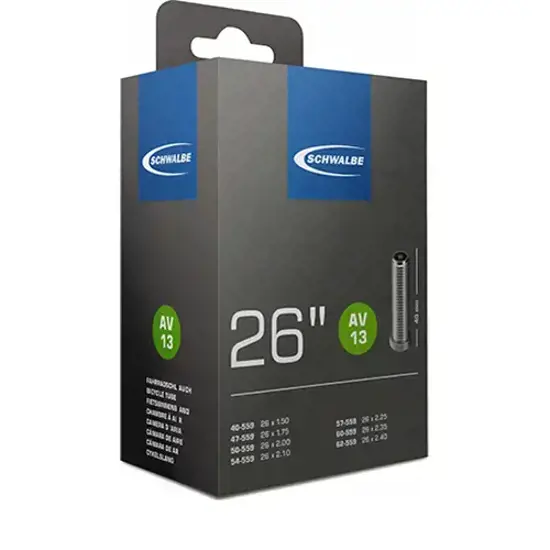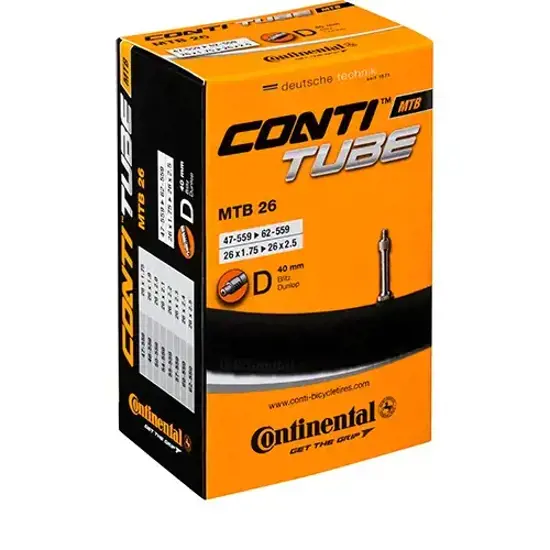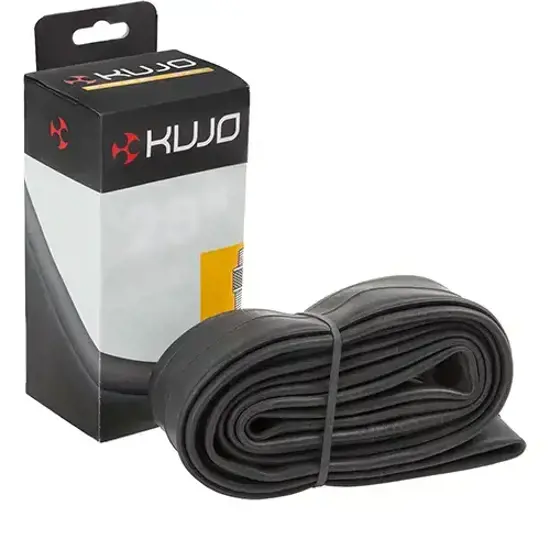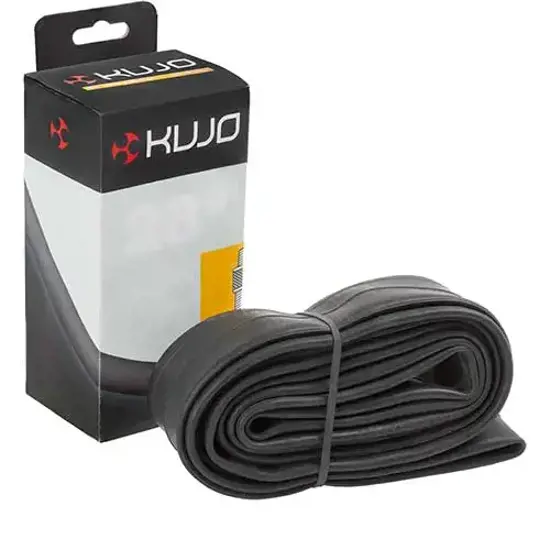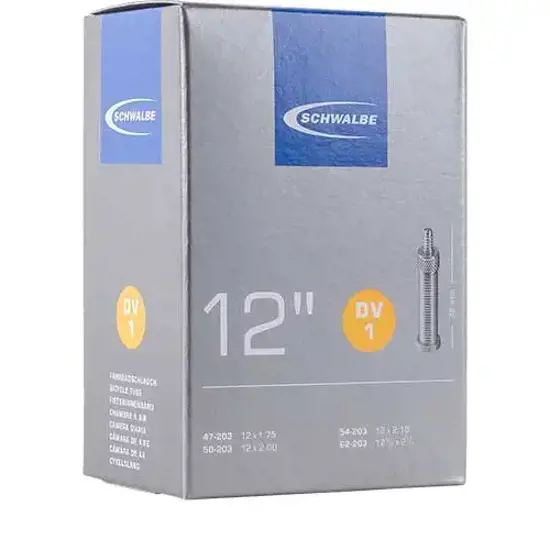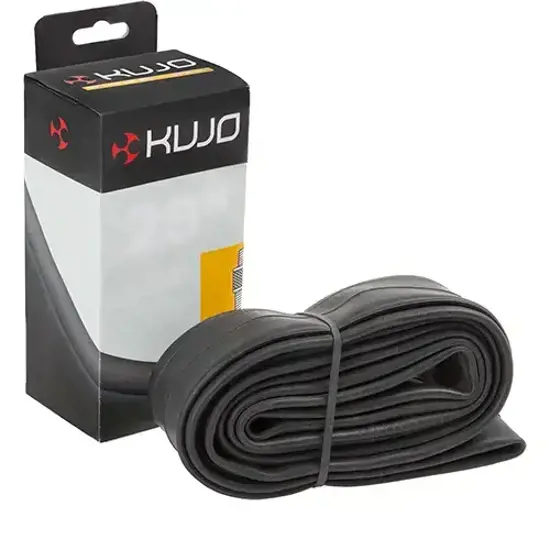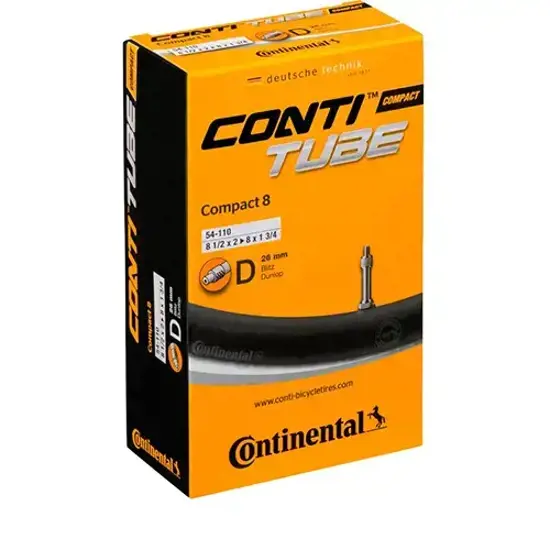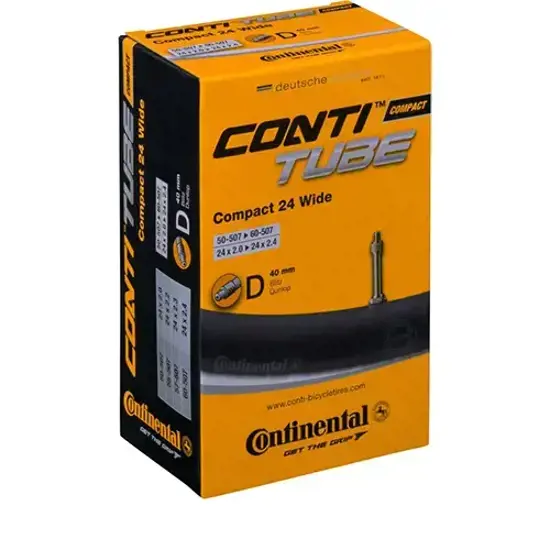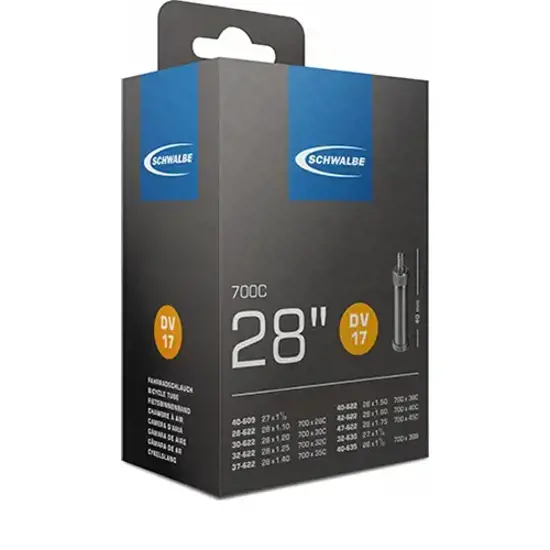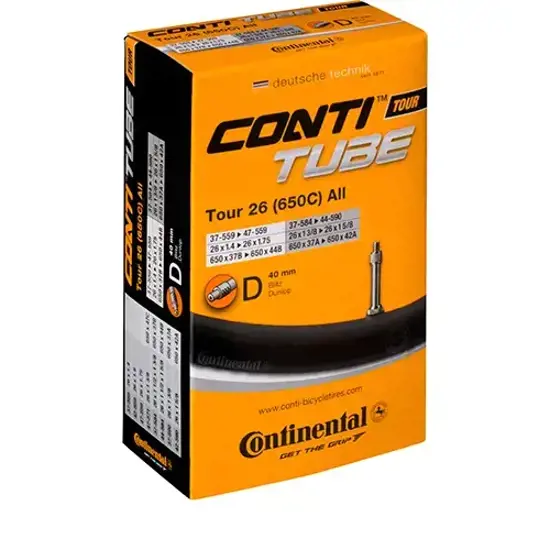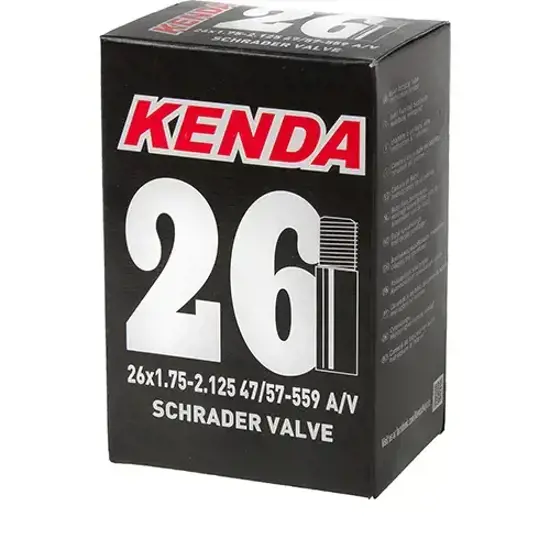Bicycle tubes
High-quality bicycle tubes at reifen.com
-
Recommendation
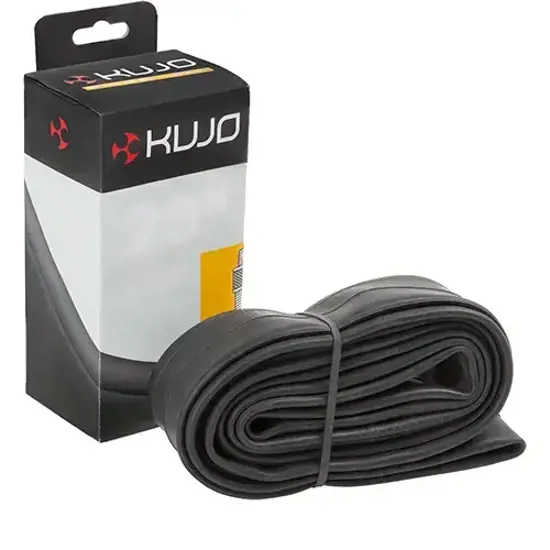
![Kujo]() Bicycle tubesKujo47/57-254/263, A/V, 14x1,75-2,125Schrader valve33 mm2.19 €
Bicycle tubesKujo47/57-254/263, A/V, 14x1,75-2,125Schrader valve33 mm2.19 € -
Recommendation
![Schwalbe AV13 26 40 559 62 559 15218683]()
![Schwalbe]() Bicycle tubesSchwalbeAV13 26 40/62-559Schrader valve40 mm4.19 €
Bicycle tubesSchwalbeAV13 26 40/62-559Schrader valve40 mm4.19 € -
Recommendation
![Continental MTB Tube 26 D40 RE 47 559 62 559 15218657]()
![Continental]() Bicycle tubesContinentalMTB Tube 26"D40 RE 47/62-559Dunlop valve40 mm4.48 €
Bicycle tubesContinentalMTB Tube 26"D40 RE 47/62-559Dunlop valve40 mm4.48 € -
![Kujo 47 57 355 A V 18x1 75 2 125 15331831]()
![Kujo]() Bicycle tubesKujo47/57-355, A/V, 18x1,75-2,125Schrader valve33 mm2.31 €
Bicycle tubesKujo47/57-355, A/V, 18x1,75-2,125Schrader valve33 mm2.31 € -
![Kujo Universalschlauch 121 2x175 21 4 47 62 203 A V abgewinkelt 45 15358519]()
![Kujo]() Bicycle tubesKujoUniversal tube 12.1/2x1.75-2.1/4, 47/62-203 A/V abgewinkelt 45°Schrader valve33 mm2.70 €
Bicycle tubesKujoUniversal tube 12.1/2x1.75-2.1/4, 47/62-203 A/V abgewinkelt 45°Schrader valve33 mm2.70 € -
![Schwalbe DV1 12 47 203 62 203 15361557]()
![Schwalbe]() Bicycle tubesSchwalbeDV1 12 47/62-203Dunlop valve40 mm2.83 €
Bicycle tubesSchwalbeDV1 12 47/62-203Dunlop valve40 mm2.83 € -
![Kujo 28 47 622 630 635 DE V 27 28x1 125 1 75 15331833]()
![Kujo]() Bicycle tubesKujo28/47-622/630/635, DE/V, 27/28x1,125-1,75Dunlop valve40 mm3.14 €
Bicycle tubesKujo28/47-622/630/635, DE/V, 27/28x1,125-1,75Dunlop valve40 mm3.14 € -
![Continental Compact Tube 8 D26 RE 54 110 15332011]()
![Continental]() Bicycle tubesContinentalCompact Tube 8" D26 RE 54-110Dunlop valve26 mm3.21 €
Bicycle tubesContinentalCompact Tube 8" D26 RE 54-110Dunlop valve26 mm3.21 € -
![Continental Compact Tube Wide 24 D40 RE 50 507 60 507 15332031]()
![Continental]() Bicycle tubesContinentalCompact Tube Wide 24" D40 RE 50/60-507Dunlop valve40 mm3.34 €
Bicycle tubesContinentalCompact Tube Wide 24" D40 RE 50/60-507Dunlop valve40 mm3.34 € -
![Schwalbe DV17 28 28 622 47 635 15218690]()
![Schwalbe]() Bicycle tubesSchwalbeDV17 28 28/47-622/635Dunlop valve40 mm3.89 €
Bicycle tubesSchwalbeDV17 28 28/47-622/635Dunlop valve40 mm3.89 € -
![Continental Tour Tube All 26 D40 RE 37 559 47 559 44 590 15218666]()
![Continental]() Bicycle tubesContinentalTour Tube All 26" D40 RE 37/40-559/590Dunlop valve40 mm3.95 €
Bicycle tubesContinentalTour Tube All 26" D40 RE 37/40-559/590Dunlop valve40 mm3.95 € -
![Kenda 47 57 559 A V 26x1 75 2 125 15331893]()
![Kenda]() Bicycle tubesKenda47/57-559 A/V 26x1,75-2,125,Schrader valve35 mm3.97 €
Bicycle tubesKenda47/57-559 A/V 26x1,75-2,125,Schrader valve35 mm3.97 €
Bicycle tubes by bike type
A central element of a bicycle tyre is the bicycle tube, which has the task of absorbing the air and maintaining the air pressure inside the tyre. In the past, a bicycle tube was made of rubber; nowadays they are mostly made of butyl, sometimes also of thermoplastic or latex.
The selection of the correct tube size for the casing is not so simple, as it can be that a tube is suitable for various casing sizes. The most simple option, supposing that you haven't experience any problems previously, is to read the tube size on the tube that is to be replaced. The size specifications according to ETRTO have become the standard in this regard. If you don't have the old tube to hand, you can also read the ETRTO size specification on the casing, and look on the packaging to see if the tube fits. What is vitally important here is that you make sure you have the right valve.
Bicycle tube material
Butyl
Butyl is a very elastic, airtight, and synthetic rubber. The weight of a butyl tube depends on the respective area of use. Crucial to the quality of a butyl tube is the ratio in which the additives required for their manufacture are mixed.
Within the racing tyre segment, a butyl tube is no heavier than tubes made of thermoplastic or latex. In the mountain bike segment, this is unfortunately not the case, with butyl hoses adding more weight than products made of thermoplastic or latex.
The air loss with butyl tubes is very low.
The puncture resistance of a butyl tube is generally not so great compared to the tubes made of thermoplastic or latex.
However, one crucial criterion is the price, with butyl hoses actually cheaper than their competitors made from thermoplastic or latex.
Latex
Latex is a very light, very flexible material, which offers exceptional puncture protection. Latex tubes are coated with talcum on the outside, meaning that the tubes do not stick to the tyres. This means that the tube can avoid punctures penetrating through the casing. In this regard, it is recommended that you apply an additional layer of talc in order to increase puncture resistance. However, latex is a highly sensitive material, and as such, these tubes should not come into contact with oil or grease, and must also be protected against the influences of daylight and heat.
The high elasticity of a latex tube results in a reduced rolling resistance.
The high elasticity also has a positive influence on puncture resistance. As a result, latex tubes are much more puncture-proof than their equivalent made of butyl.
Latex tubes are extremely light.
If you want to use a latex tube, you must be aware of the fact that you have to check the tyre pressure prior to each time you set off, and carrying a pump with you is also advisable. A latex tube will lose air much more quickly than a product made of butyl or thermoplastic.
Latex tubes are more expensive than butyl tubes.
Thermoplastic tubes
Tubes made of thermoplastic are relatively unknown. The most important difference to the butyl and latex tubes is the fact that these are made of a plastic. Tubes made of thermoplastic are extremely durable, and are much more elastic than their latex or butyl relatives.
Tubes made of thermoplastic are highly puncture-resistant, and should damage ever occur, these tubes are extremely easy to patch.
Thermoplastic tubes are incredibly lightweight. There are tubes that offer a weight saving of more than 50& compared to butyl tubes.
The roll resistance is very low on account of the flexibility of the thermoplastic tube.
A thermoplastic tube barely loses any air.
The only disadvantage of these tubes is the price, which is actually comparatively high.
 Germany
Germany


